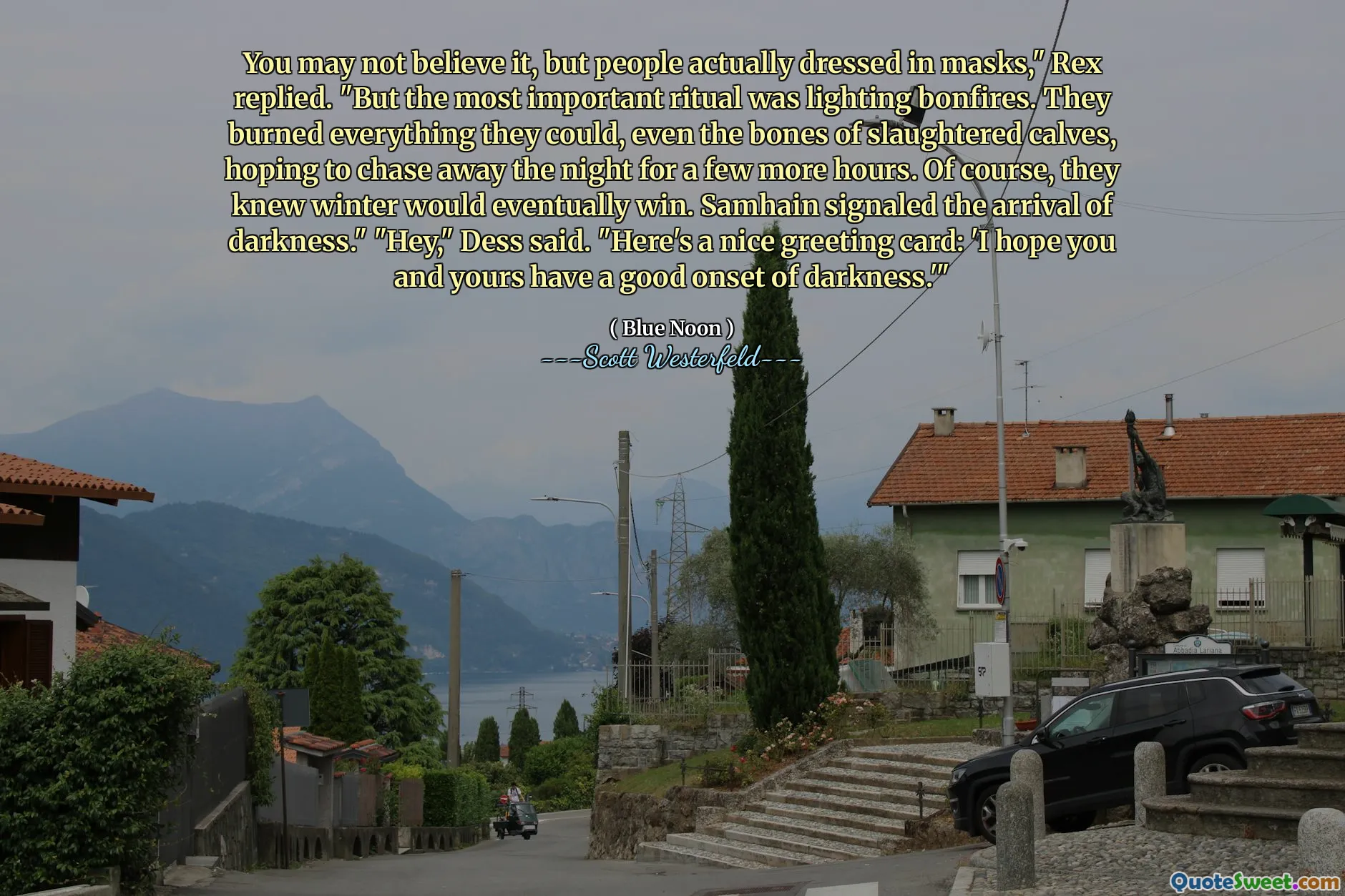
You may not believe it, but people actually dressed in masks," Rex replied. "But the most important ritual was lighting bonfires. They burned everything they could, even the bones of slaughtered calves, hoping to chase away the night for a few more hours. Of course, they knew winter would eventually win. Samhain signaled the arrival of darkness." "Hey," Dess said. "Here's a nice greeting card: 'I hope you and yours have a good onset of darkness.'"
This quote vividly captures the ancient rituals associated with the transition into the darkest months of the year, particularly through the lens of traditional celebrations like Samhain. The imagery of masked gatherings and blazing bonfires symbolizes humanity's enduring efforts to confront and ward off darkness—both literal and metaphorical. The act of burning bones and other remnants suggests a ritualistic effort to purify or appease unknown supernatural forces, reflecting an intuitive understanding of cycles of light and dark that define seasonal change. The acknowledgment that winter ultimately prevails underscores the acceptance of nature's rhythm and inevitability. Dess's sarcastic greeting about the 'onset of darkness' adds a layer of modern humor, contrasting our contemporary perspective with ancient practices. This quote evokes themes of tradition, humanity's respect for natural cycles, and the psychological and cultural importance of rites that help communities cope with the fear of the dark and the cold winter ahead. It also reminds us how rituals, even today, serve to connect us with our ancestors' efforts to find meaning and reassurance amid periods of uncertainty and adversity, reinforcing the idea that darkness is not only a time of fear but also of reflection, renewal, and resilience.







